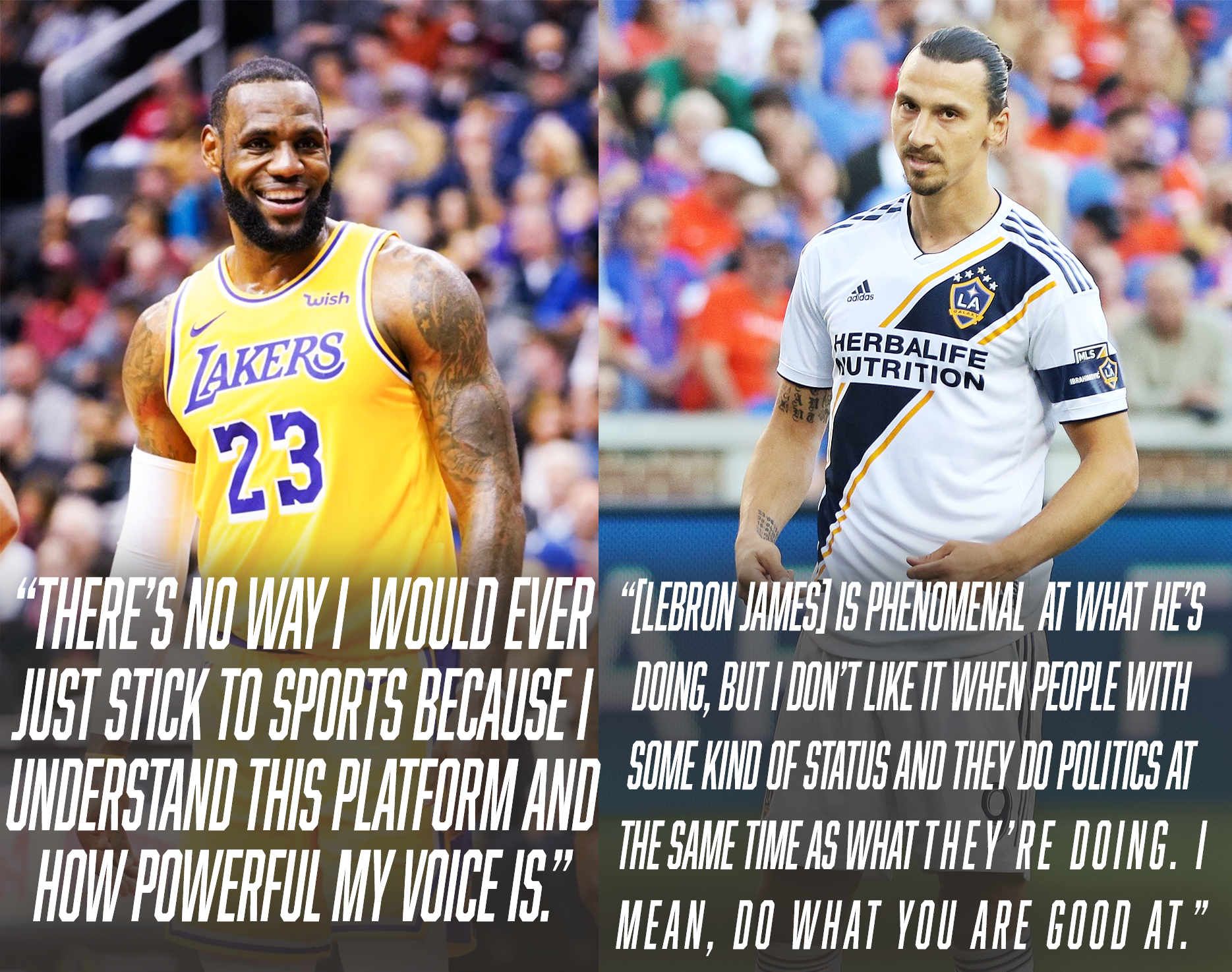Analysis | Athletes should ‘do politics,’ too
Swedish soccer player Zlatan Ibrahimovic criticized NBA superstar LeBron James Feb. 25 for James’ efforts to speak out on social justice. WikiCommons
Throughout history, from Muhammad Ali to Kareem Abdul-Jabbar to Megan Rapinoe, athletes have used their personal platforms to speak out against injustices within the governmental systems we abide under.
But in a recent Feb. 25 press conference for the Sanremo Festival he’s co-hosting, Swedish soccer player Zlatan Ibrahimovic criticized NBA player LeBron James for his history of speaking out against racial violence and policies from political figures like former President Donald Trump.
“He is phenomenal at what he’s doing, but I don’t like (that) when people have some kind of status, they go and do politics at the same time,” Ibrahimovic said in the press conference. “Athletes unite the world, politics divide it … Athletes should be athletes and politicians should do politics.”
In response to Ibrahimovic, James was quick to defend his own efforts in activism.
"I preach about my people and I preach about equality. Social injustice. Racism. Systematic voter suppression. Things that go on in our community,” James told the media Feb. 26. “I was a part of my community at one point and saw the things that were going on, and I know what's going on still, because I have a group of 300-plus kids at my school that are going through the same thing and they need a voice. And I'm their voice."
In the past, athletes like Mahmoud Abdul-Rauf, Colin Kaepernick and Ali were ostracized within their respective leagues for taking public stances on racial or political issues — and clearly, anti-political sentiment still exists within the sports world, as evidenced by Ibrahimovic’s comments. Yet according to Hector Martinez, a Chapman University sociology professor, activism among athletes has gradually become more acceptable.
“Right now, we’re at a point in time where it’s popular to engage in activism publicly,” Martinez said. “More and more are standing up (against) this idea of racial injustice; people don’t want to feel like they’re perpetrating those kinds of things.”
Bob Owens, Chapman’s head football coach, said that with the rise of social media, the influence athletes can have on youth — including political ideology — is significant. From his point of view, athletes have a moral obligation to call out injustice. In that sense, many can use their platforms to issue rallying cries of sorts.
“Athletes are no different from other professionals in our country … (They use their) status to voice their opinions to make conditions around them better, whether that’s on a local level or a national level,” Owens said. “They are able to be a catalyst for greater opportunities for people who aren’t in a position to advocate.”
That activism is particularly powerful coming from someone like James, said Chapman sophomore Joy Joukhadar, a member of Chapman Democrats.
“There’s no doubt in my mind that athletes have influences on what people think, especially someone like LeBron James, who has stories about coming from immense hardship and building himself up,” Joukhadar said. “People look up to him and when they hear him speak out on issues of voter suppression or civil rights, they’re going to listen.”
Ultimately, given how embedded race is in the country’s political climate and how similarly tied it is into the fabric of sports history, Martinez disagreed with Ibrahimovic’s assessment.
“When you look at the history of this nation and the history of professional sports, sports have never been separate from race,” Martinez said. “At one point, there were no Black athletes in any basketball league; there were only white athletes.”
As James says, he is more than just an athlete. When given a platform, it should be important for athletes to call out moral injustice. Because they have an impact, whether people like it or not.
“Sometimes when we look at athletes, we think that they’re just athletes — that they’re not fellow members of their community,” Owens said. “I think we pigeonhole athletes and look at their main contribution to society as performing. We all have jobs, but none of those things define us, and that shouldn’t define athletes.”

